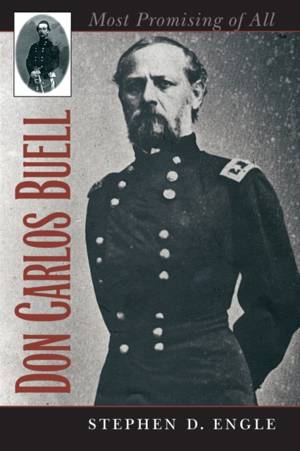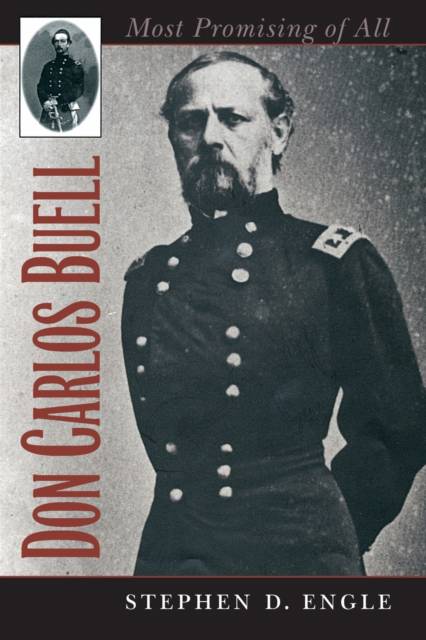
- Afhalen na 1 uur in een winkel met voorraad
- Gratis thuislevering in België vanaf € 30
- Ruim aanbod met 7 miljoen producten
- Afhalen na 1 uur in een winkel met voorraad
- Gratis thuislevering in België vanaf € 30
- Ruim aanbod met 7 miljoen producten
Zoeken
€ 76,45
+ 152 punten
Omschrijving
Major General Don Carlos Buell stood among the senior Northern commanders early in the Civil War, led the Army of the Ohio in the critical Kentucky theater in 1861-62, and helped shape the direction of the conflict during its first years. Only a handful of Northern generals loomed as large on the military landscape during this period, and Buell is the only one of them who has not been the subject of a full-scale biography.
A conservative Democrat, Buell viewed the Civil War as a contest to restore the antebellum Union rather than a struggle to bring significant social change to the slaveholding South. Stephen Engle explores the effects that this attitude -- one shared by a number of other Union officers early in the war -- had on the Northern high command and on political-military relations. In addition, he examines the ramifications within the Army of the Ohio of Buell's proslavery leanings.
A personally brave, intelligent, and talented officer, Buell nonetheless failed as a theater and army commander, and in late 1862 he was removed from command. But as Engle notes, Buell's attitude and campaigns provided the Union with a valuable lesson: that the Confederacy would not yield to halfhearted campaigns with limited goals.
A conservative Democrat, Buell viewed the Civil War as a contest to restore the antebellum Union rather than a struggle to bring significant social change to the slaveholding South. Stephen Engle explores the effects that this attitude -- one shared by a number of other Union officers early in the war -- had on the Northern high command and on political-military relations. In addition, he examines the ramifications within the Army of the Ohio of Buell's proslavery leanings.
A personally brave, intelligent, and talented officer, Buell nonetheless failed as a theater and army commander, and in late 1862 he was removed from command. But as Engle notes, Buell's attitude and campaigns provided the Union with a valuable lesson: that the Confederacy would not yield to halfhearted campaigns with limited goals.
Specificaties
Betrokkenen
- Auteur(s):
- Uitgeverij:
Inhoud
- Aantal bladzijden:
- 496
- Taal:
- Engels
- Reeks:
Eigenschappen
- Productcode (EAN):
- 9781469617107
- Verschijningsdatum:
- 1/04/2014
- Uitvoering:
- Paperback
- Formaat:
- Trade paperback (VS)
- Afmetingen:
- 156 mm x 234 mm
- Gewicht:
- 757 g

Alleen bij Standaard Boekhandel
+ 152 punten op je klantenkaart van Standaard Boekhandel
Beoordelingen
We publiceren alleen reviews die voldoen aan de voorwaarden voor reviews. Bekijk onze voorwaarden voor reviews.









